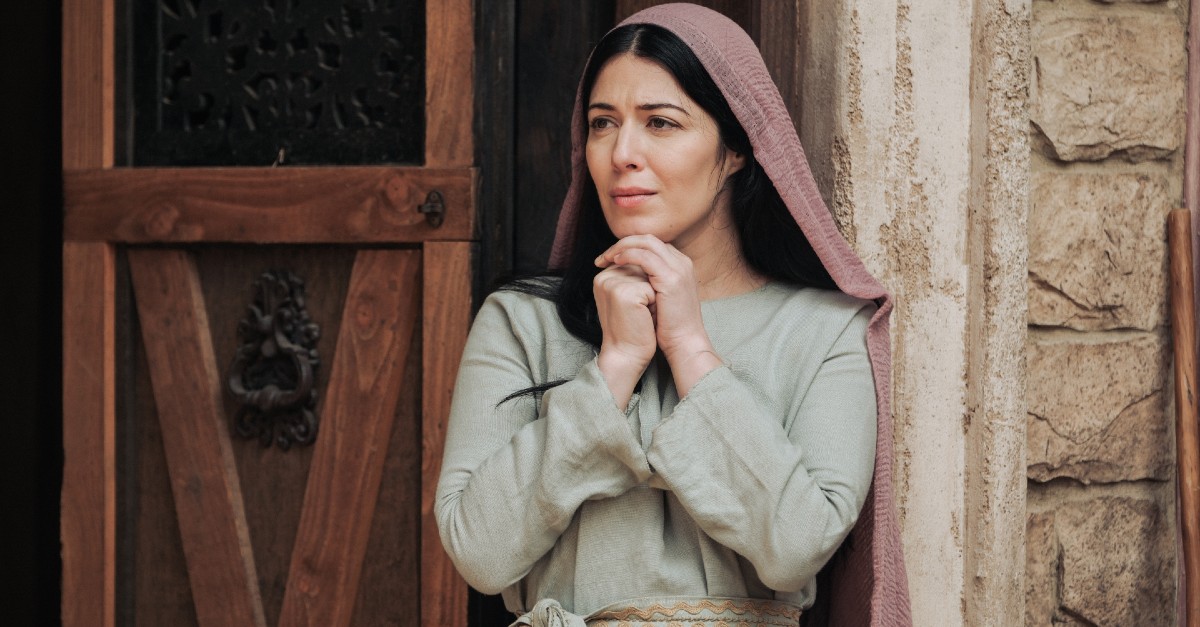Juz 19 Takeaway: Allah (SWT) Makes Clear What Is Right From What Is Not
During our 19th day of the #MuslimGirlRamadanBookClub series, we dive into Juz 19. Here are our key takeaways and reflections.

During our 19th day of the #MuslimGirlRamadanBookClub series, we dive into Juz 19, completing Surah Furqan, and its explanation and argument of the oneness of God. The Makki surah is the 42nd story revealed to the holy Prophet (PBUH).
Here are our main reflections and takeaways!
Refuting claims made by disbelievers
In the remainder of this Surah, we continue to analyze ‘frequently asked questions’ (or rather, excuses) made by non-believers and His explanation for each. Fuqran, which means the thing that separates truth from falsehood, serves as a prelude to the complete explanation of this.
Here are the main takeaways from verses 21-59 of Surah al-Furqan:
And on the day when the heaven shall burst asunder with the clouds and the angels shall be sent down descending (in ranks). The dominion that day in truth shall belong to the Beneficent Lord, and a hard day shall it be for the unbelievers.
— Quran (25:25, 26)
We see the breakdown of the third objection raised by disbelievers when arguing against following Allah (SWT). In their argument, polytheists question why the angels are not sent down to the people to prove their validity. They assume the angels view themselves with pride.
Allah (SWT) refutes this claim by stating that the day the disbelievers were to come face to face with the angels will be on the (Day of Judgement) of their punishment. On that day, the proof of the angels will serve as a bitter reality to the disbelievers who sought to question the oneness of God.
And We said: ‘Go you both unto the people who have rejected Our signs!’ so We destroyed them with utter destruction.
— Quran (25:36)
The fourth objection challenges the timing of Allah (SWT) and why he chose to reveal the holy Quran in gradual revelation instead of all at once. For context, the Prophet (PBUH) was given the word of God over 23 years. Revelation began at the time of his Prophethood, at 40, and concluded the year of his death (63 years old).
The challenge is quickly put to rest as Allah (SWT) explains that the gradual revelation aimed to not only strengthen the Prophet’s heart in his mission to spread the religion but also because each verse given to the Prophet sought a special position to answer a question the Prophet (PBUH) or his community had faced.
In a second reply from verses 34-40, the consequences of defying the word of God have been apparent throughout hundreds of years. From Prophet Nuh’s message being denied to Prophet Lut’s, each rejection of truthhood resulted in consequences. In each revelation, proofs, evidence, verses, and signs were rejected.
And when it is said to them: ‘Prostrate you to Rahman (The Beneficent Allah), they say: ‘And what is Rahman (the Beneficent Allah)? Shall we prostrate to what you [Muhammad SAW] bid us?’ And it increases their in aversion.
— Quran (25:60)
In the final objection presented in Surah Furqan, polytheists challenge the mere validity of serving Allah (SWT). The refute begins to recognize the blessings that God has bestowed as reasons to worship him. He references ‘a great lamp’ (the sun) and a moon giving light (verses 60-62).
Allah (SWT) leaves no stone unturned as he describes the believer. The believer walks the Earth in humility and responds to foolish words with peace and kindness. Those who depend and believe in Islam and do not witness falsehood, except passing it with dignity define the traits of the believer.
In his final verse and reply to his Prophet (PBUH), Allah (SWT) tells Muhammad to reply to the disbelievers with affirmation. He reminds his disbelievers that their denial is noted and the torment of punishment awaits them.
Holding onto faith in Allah at all times
Surah Ash-Shara (Makki) seeks to confirm monotheism, fear the afterlife, and confirm the revelation given to Muhammad. It seeks to call the poor fate of those who opposed the movements of the Prophets of the past and calls for a plan of salvation and victory for those who chose the path of Allah (SWT).
The Surah is divided into three parts:
First, the chapter begins by calling for the greatness of the Quran and affirms the grandeur of the Prophets. It also references signs of monotheism.
Perhaps you will kill yourself with grief, for that they do not become Believers.
— Quran (26:3)
The Arabic word baxi means: ‘kill oneself by sorrow and sadness.’ The holy Prophet (PBUH) was compassionate towards the disbelievers who were sitting beside the truth yet refused to acknowledge its divinity. While the same can be said for each of the Prophets of Islam, the sentiment has been repeated for the Prophet (PBUH) multiple times in the Quran.
The message of truth was often ignored or even mocked by disbelievers with whom divine punishment was promised.
Second, the struggles and stories of Prophets such as Noah (as), Abraham (as), Lut (as), Hud (as), Salih (as), Shu’ayb (as) are recounted. Prophet Moses (as) is particularly referenced. In each example, the similarity of arguments by disbelievers is mentioned. And in each example, the fate of the deniers is mentioned.
My Lord! Grant me [unerring] judgement, and unite me with the Righteous. Confer on me a worthy repute among the posterity, and make me one of the heirs to the paradise of bliss. Forgive my father, for he is one of those who are astray. Do not disgrace me on the day that they will be resurrected, the day when neither wealth nor children will avail, except him who comes to Allah with a sound heart.
— Quran (26:83-89)
In a famous supplication narrated by Prophet Abraham (as), the verse preaches the practice of humbleness and sincerity towards believers. In these supplications, Abraham (as) asks God for knowledge, honor here and within heaven, forgiveness for the sins of his parents and not to be disgraced on the day of judgement.
Lastly, in the conclusion of the surah, the Prophet (SWT) is given advice on how to call the people towards the religion and what rewards are promised towards them.
Stories of prophets and their struggles
Similar in theme to the previous Surah, Surah Naml (which translates to ant) narrates the story of Ants and the Prophet Solomon (as). The Makki Surah briefly mentions the stories of four other prophets: Moses (as), David (as), Salih (as), and Lot (as).
Verily, those who believe not in the Hereafter, we have made their deeds fair-seeming to them, so they wonder about blindly.
— Quran (27:4)
According to many scholars, the main goal of Surah al-Naml is to give good tidings and warnings to people. Quranic teachings, therefore, have no effect on the disbelievers of truth. It is interesting to note a common theme that is narrated about the disbeliever throughout the Quran. The disbeliever is often very comfortable in their disillusions about Allah (SWT). The more they seek justification against Him, the further they fall into falsely created comfort.
A well-known verse of Surah al-Naml discusses the destruction of cities during wars. The verse can seem pertinent in many instances today.
She said, ‘Indeed when kings enter a town, they devastate it, and reduce the mightiest of its people to the most abased. That is how they act.
— Quran (27:34)
The verse was given in response to the Queen of Sheba who responded to the cabinet that asked her to declare war against Prophet Solomon (as). Despite being a monarch herself, she could not participate in the war-mongering and partake in the aftermaths of this action.
Surah al-Naml continues into Juz 20 where characteristics of travel and famous supplication are mentioned.
How does Juz 19 speak to you? What do you highlight from this chapter? Let us know on all social media platforms!
What's Your Reaction?






















![Canva Tutorial For Beginners | How to Use Canva Like PRO [FREE] | Canva Full Course](https://img.youtube.com/vi/yWJp7gQqCQ8/maxresdefault.jpg)
